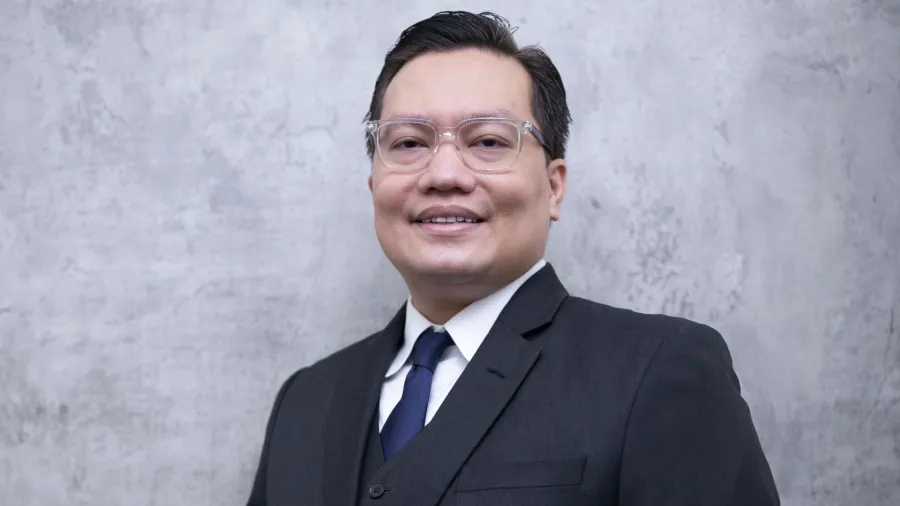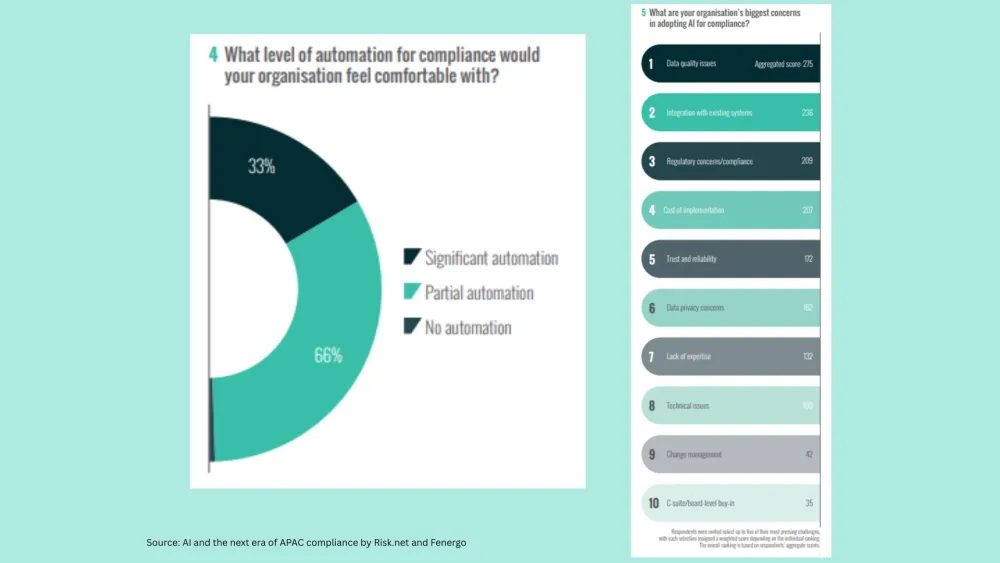
Why Indonesia's Bank Raya seeks to service the gig economy
By 2025, the bank expects the country to have 74.81 million gig workers.
Bank BRI Agro has shed its roots as an agribusiness- focused finance platform and rebranded as Bank Raya, looking to take flight as a fully-fledged digital-only bank able to service all Indoneseians--with a particular focus on the 46 million Indonesians who count themselves part of the local gig economy. This number is expected to reach 74.81 million by 2025, and expand to a market size of US$314b, according to the bank.
Whilst many Indonesians held side jobs even before the pandemic, the gig economy truly flourished at the height of the pandemic. Mass layoffs pushed workers to explore new avenues of income in jobs that are traditionally seen as side work, whilst others grabbed on opportunities to make more cash from the rise of digital platforms.
Plans are already in motion. In May, BRI Agro appointed Kaspar Situmorang, former division head of Digital Bank Development & Operations at Bank BRI, as its CEO to lead its transformation into a full digital bank.
The bank has also secured regulatory approval, clinching the license to operate as a digital lending platform. To make the leap from agribusiness-focused to a fully-fledged digital bank, BRI Agro has also rebranded.
“Bank Agro has the tendency to sound like it is only related to agribusiness, but we are now expanding our reach not just to agribusiness but many types of industries by targeting the gig economy,” Situmorang told Asian Banking & Finance. “That's why we decided to reshape and rename our bank and revamp the logo as well, to show that we are not just for agribusiness customers. We're going to publish our new name and logo soon, so please look forward to it.”
Asian Banking & Finance chatted with Situmorang to learn more about the then BRI Agro’s--now Bank Raya's--ambitions and why they have decided to focus on the gig economy. He also shared the firm's hopes of becoming the biggest digital bank in Indonesia.
One of the major tasks in store for you is to transform BRI Agro into a fully digital bank. Could you give us a sneak peek or perhaps a rundown on how you plan to lead BRI Agro through this transformation?
To transform this bank—if we're using a balanced scorecard—we have to transform the cultures and also the digitals [of the bank]. Transforming culture and transforming the digital is the way we accelerate the journey in order to make BRI Agro become the best digital bank in Indonesia.
The way we do it is starting with transforming the human capital, transforming the business processes, and then transforming the customer itself. Then we expect that it will reflect in the financials. the numbers. If you're using the balanced scorecard models: flip the human capital, flip the business process, and flip the customers, then you will get the reflections in the form of a new kind of financial gain.
For the past few years, we have already been investing in BRI Agro. The bank is pretty much ready because we have implemented the application for digital lending, Penang, which is one of the first in Indonesia, back in 2019.
The way we plan to transform it is threefold. The first one is digital, the second part is to digitise. For the third one, we are doing a revamp of the bank, as well. So on the digital side, we are trying to amplify the development of super apps within the organization and also we are trying to simplify the business process to become fully digital. whether it's for digital lending to micro-businesses, lending to retail customers, and even lending to the consumer side.
On the digitizing part, that's where we are streamlining all the business processes. For example, in loan originations until disbursement and repayment, we try to streamline the processes, so it becomes a new standard. Here we are also trying to avoid operational risks.
And last but not least is the revamp itself. This is where we are working to transform the branch offices. I think you already know that branch offices in Southeast Asia have been shifting. We've also recognized this trend, and we are trying to revamp our branch offices into what we call "community branches." So it's more streamlined, more specific to an ecosystem, and we've got strategic partners also working together with us. By combining our partners from BRF venture capital, some of their fintechs have already been invested in by us. Lots of them--Invest Tree, Payfast, Bukalapak--and we are partnering also with Grab
What can Indonesians expect to see in the transformed BRI Agro?
We're trying to create a distinguishing factor, a distinguishing characteristic of this bank, which is totally separate from BRI Holdings.
We figured out that there is a specific segment by the name of gig economy, or the informal sector of employment. When the pandemic hit, a lot of people were left unemployed all over Indonesia. Luckily, we've got platforms providing gig work available in Indonesia like right hailing apps, e-commerce, agritech, edutech, healthtech, and also, entertainment tech. So all these have been creating opportunities for those people who got laid off by the pandemic. For example farmers in the morning, they are farming, then in the afternoon, they could become right hailing drivers, for Gojek or Grab, for example. Then in the evening, they work as resellers or merchants in e-commerce platforms, or as shippers of e-commerce products.
So how do we serve them? Through B2B2C, so business to business to consumer. We are a digital bank, we are providing our partners which is the platform itself--like ride-hailing e-commerce, and so on and so forth--we provide them with our API to easily open a savings account, our APIs to do digital lending, with our open banking platform to do money transfer, opening of virtual account, amongst other services. So these are the type of services that we provide in the business model B2B2C.
So far, through Pinang, which is our digital lending app, we've already enabled APIs in this product, and we tap it into our partners' platforms, for example, Payfast, an agent banking platform in Indonesia. So Payfast customers can open up from their apps a BRI Agros saving account; we don't have to meet in a physical office or face-to-face, just scan their face, provide their digital ID signatures, and a savings account will be opened up in less than five minutes. These kinds of services should amplify the massive scale adoptions to our platforms.
How will your past career in fintech and digital bank development guide you in your position as CEO of BRI Agro?
For the past few years, I've been assigned to specific FinTech positions with banks. Since working with PT Bank Rakyat Indonesia (Persero) Tbk, I have served as Executive Vice President of the Digital Center of Excellence for two years. After that, I moved to the role of executive vice president of Digital Banking Development and Operations, where I was in charge of the whole digitalization of the BRI groups. Since 2019, I have also been fulfilling roles for BRI Venture Capital.
Back in 2018, I started building a new company by the name of BRI Venture Capital. We invested in around 10 fintechs over a span of two years, one of which is by the name of Agia, which was established in 2018. I was also a part of the Board of Commissioners for the past two years, until April. So as you can see I've worked in a wide range of fintech, banking, and in particular digital banking roles for the past four years.
How does BRI Agro plan to become the digital finance hub for the local gig and service economy?
In 2018, we were the first bank to own an open API in Indonesia. Last year, it's growth was 390%, and it's closing 55 trillion in fee base. So it's had amazing growth since 2018. 2019 we started with digital lending by the name of Penang, which in turn taps into BRI Agro. We work together with Tokopedia and it was a massive success as well. In 2020 we have digital savings. Customers just need to scan their IDs, scan the face using biometrics and also can now use digital signatures. And with these, they can open up a savings account in less than five minutes.
It goes beyond that. We've also launched the super app in 2020 by the name of BRI BriMo, or BRI Mobile at a time. So at that time, we were thinking about, "How can we transform the industries?"
Everybody's talking about digital this and that, but we cannot make the BRI Holding a purely digital bank because it's too big. It's already a massive scale in itself. So the pinnacle of digital transformation of BRI Group is Bank BRI Agro becoming a digital bank. That's the storyline. That's the background.
In order to be able to scale up, we have to choose a specific segment as well that we have already been monitoring under our radar for the past few years, which is Indonesia's Gig Economy. No other bank in Indonesia has built digital infrastructures around the gig economy. So hopefully for the next few years, Bank BRI Agro will be the sole bank to build digital infrastructures around the gig economy of Indonesia.
Another goal of BRI Agro is to retire the dusty "banking the unbanked" maxim in emerging Asia, and instead, focus on "re-banking BRI" to become more relevant to digital-first customers. Could you explain to us what this means?
We try to reframe, reimagine, and reconfigure ourselves every year. Reimagining [and] reconfiguring, we've done that all the time in order to be able to stay relevant with our competitions in Southeast Asia and also in Indonesia. For BRI Agro to be specific, we think that it's not our duty to bank the unbanked; or bank the about 90 to millions of Indonesians who haven't got a bank account yet. That position, the duty of banking the unbanked is the duty of Bank BRI, the parent company because they have the massive scale of employees, the massive scale of networks, and even the satellites to do so; we are the only bank in the whole world that has satellites. Bank BRI is very focused in amplifying financial inclusion across Indonesia. As a matter of fact, that's our vision-mission in Indonesia: to accelerate financial inclusion in the country. So that is the beauty of BRI.
For BRI Agro, we skimmed this goal down to become more tangible. There are still a lot of people in Indonesia, especially amongst banked people, who need access to financial services that cater to their specific needs. We are talking about the people who got laid off in the last few years, especially during the pandemic, for example. Luckily, the gig economy as we know, the different tech platforms, all came together to form its own economy in the past few years. This has created a new kind of opportunity for us. BRI Holdings does not have a specific focus on the gig economy, because they are very focused on the micro and ultra micro-segments.
So that's where we, Bank Agro, will come in. This digital bank will tap into this specific market in Asia. It will focus on the gig economy.
Why the gig economy? Because in this kind of sector, the customers themselves are very digital-savvy. They are not just using WhatsApp or TikTok or Instagram or YouTube just for the sake of entertainment now, but they've been utilizing their smartphones to make money out of these platforms that they are working for.
So that's, I think, is the reimagining, reconfiguring and revamping of BRI: one business will focus on micro and ultra micro-segments, and the other one will operate as a digital bank focusing on gig economy workers. Hopefully, by the end of 2023, we are able to become the largest provider of digital infrastructure, especially financial digital infrastructure, for the gig economy workers, the 74 million of them within Indonesia.
By your estimation, when and how do you plan to make a profit?
There are only three digital banks globally that are already profitable. Two of them are in China, one owned by Tencent and one by Alibaba for example. And they are exploiting the ecosystem really well, so much so that in China, those two banks are already making profits since 2019. The other profitable bank is in South Korea, Kakao Bank. Again, they are also exploiting the local ecosystem, this time the messaging ecosystem of Kakao, and that enabled them to make a profit.
In Southeast Asia, also in Germany, the US, Brazil, a lot of digital banks are happening, but none of them are making profits yet. So far it's just the investments from venture capitals.
The caveats are threefold. The first one, the competition amongst digital banks cast a wide net, because the strategic partners are many, especially with tech platforms such as Grab, Bukalapak, Gojek, for example. It presents a very wide opportunity as well. And those owning the largest distribution networks, they are the ones who have a tendency to win the battle. That's why we are humbled to have these kinds of networks, provided by the BRI Groups, by the venture capitals, to be able to cast a wide net on this kind of distribution network through the fintechs that we own and the startups that we have invested in.



















 Advertise
Advertise













